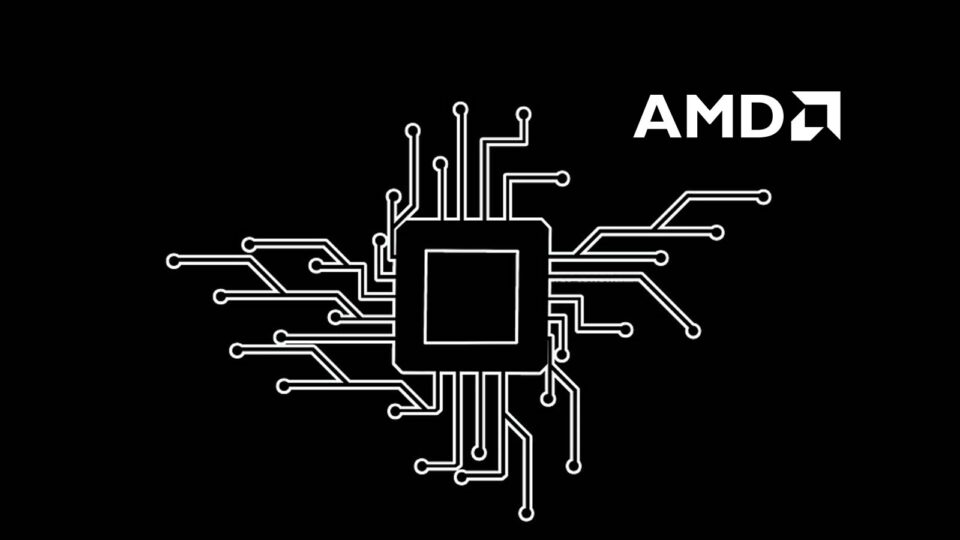Growing preference for EPYC™ processors resulted in the number of AMD-powered supercomputers growing 3.5x year-over-year
During this year’s Supercomputing Conference 2021 (SC21), AMD is showcasing its expanded presence and growing preference in the high performance computing (HPC) industry with the exceptional innovation and adoption of AMD data center processors and accelerators. Customers across the industry continue to expand their use of AMD EPYC™ processors and AMD Instinct™ accelerators to power cutting-edge research needed to address some of the world’s biggest challenges in climate, life sciences, medicine, and more.
Growing preference for AMD is showcased in the latest Top500 list. AMD now powers 73 supercomputers, compared to 21 in the November 2020 list, a more than 3x year-over-year increase. Additionally, AMD powers four out of the top ten most powerful supercomputers in the world, as well as the most powerful supercomputer in EMEA. Finally, AMD EPYC 7003 series processors, which launched eight months ago, are utilized by 17 of the 75 AMD powered supercomputers in the list, demonstrating the rapid adoption of the latest generation of EPYC processors.
Top iTechnology AIOps News: Beautiful.ai Doubles Down on Growth and Design, Promotes Jason Lapp to CEO
“The demands of supercomputing users have increased exponentially as the world seeks to accelerate research, reducing the time to discovery of valuable information,” said Forrest Norrod, senior vice president and general manager, Data Center and Embedded Solutions Business Group, AMD. “With AMD EPYC CPUs and Instinct accelerators, we continue to evolve our product offering to push the boundaries of data center technologies enabling faster research, better outcomes and more impact on the world.”
AMD has also been recognized in the annual HPCwire Readers’ and Editors’ Choice Awards at SC21. The company won ten awards including Best Sustainability Innovation in HPC, Best HPC Server Product and the Outstanding Leadership in HPC award presented to President and CEO Dr. Lisa Su.
Expanding Customer Base
AMD is engaged broadly across the HPC industry to deliver the performance and efficiency of AMD EPYC and AMD Instinct products, along with the ROCm™ open ecosystem, to speed research. Through high-profile installations like the ongoing deployment of Oak Ridge National Laboratory’s “Frontier” supercomputer, AMD is bringing the compute technologies and performance needed to support developments in current and future research across the world. Highlights of “Frontier” and other new HPC systems in the industry include:
- “Adastra,” an HPE supercomputer that will have two partitions powered by AMD CPUs and accelerators, was recently announced by GENCI, the French national agency for HPC, and CINES, the National Computing Center for Higher Education. The first partition is based on next-generation AMD EPYC processors code named “Genoa” and the second partition is based on 3rd Gen AMD EPYC processors and AMD Instinct MI250x accelerators.
- Argonne National Laboratory’s “Polaris” testbed supercomputer, powered by AMD EPYC 7003 series processors, enabling scientists and developers to tackle a range of artificial intelligence (AI), engineering and scientific projects.
Top iTechnology Cloud News: DEMICON is amongst the best IT service providers in Germany
- A new supercomputer built by HPE using AMD’s EPYC CPUs to advance weather forecasting and climate research for the National Center of Meteorology in the United Arab Emirates. HPE also updated Eni’s supercomputer to accelerate the discovery of energy sources using AMD’s EPYC processors.
- Oak Ridge National Laboratory’s “Frontier” exascale computer – which is powered by optimized 3rd Gen AMD EPYC processors and AMD’s Instinct MI250x accelerators.
- The Texas Advanced Computing Center at The University of Texas at Austin launched Lonestar6, a Dell Technologies supercomputer powered by AMD’s EPYC 7003 series processors.
- University of Vermont’s Advanced Computing Core, powered by AMD’s EPYC processors and AMD’s Instinct accelerators, driving research into COVID-19 and solutions to future potential threats to global health.
- Washington University’s advanced clustering technologies, powered by AMD’s EPYC processors, studying COVID-19 and home to the Folding@home project.
A Year of Breakthrough Products and Research
This year AMD’s launched its AMD’s EPYC 7003 series processor, the world’s highest-performing server processor.1 Since then, there has been overwhelming adoption from partners across the industry who are driving discoveries in biomedicine, predicting natural disasters, clean energy, semiconductors, microelectronics and more.
Expanding on the features of the EPYC 7003 series processor, AMD’s recently previewed the 3rd Gen EPYC processor with AMD’s 3D V-cache. By utilizing innovative packaging technology, which layers the L3 cache in EPYC 7003 series processors, AMD’s 3D V-Cache technology offers enhanced performance for the technical computing workloads prevalent in HPC. Microsoft Azure HPC virtual machines featuring 3rd Gen EPYC with AMD’s 3D V-Cache are currently available in Private Preview and will be available globally soon.
AMD’s also unveiled the world’s fastest HPC and AI accelerator2, AMD Instinct MI250X. Designed with the AMD’s CDNA™ 2 architecture, the AMD’s Instinct MI200 series accelerators deliver up to 4.9x the peak FP64 performance versus competitive data center accelerators, which is critical for HPC applications like weather modeling2. The AMD’s Instinct MI200 series accelerators are also the first to have over 100GB high-bandwidth memory capacity, delivering up to 3.2 terabytes per second, the industry’s best aggregate bandwidth3.
Top iTechnology Analytics News: Logz.io Unveils Enhancements to Observability Platform at ScaleUP 2021
[To share your insights with us, please write to sghosh@martechseries.com]


